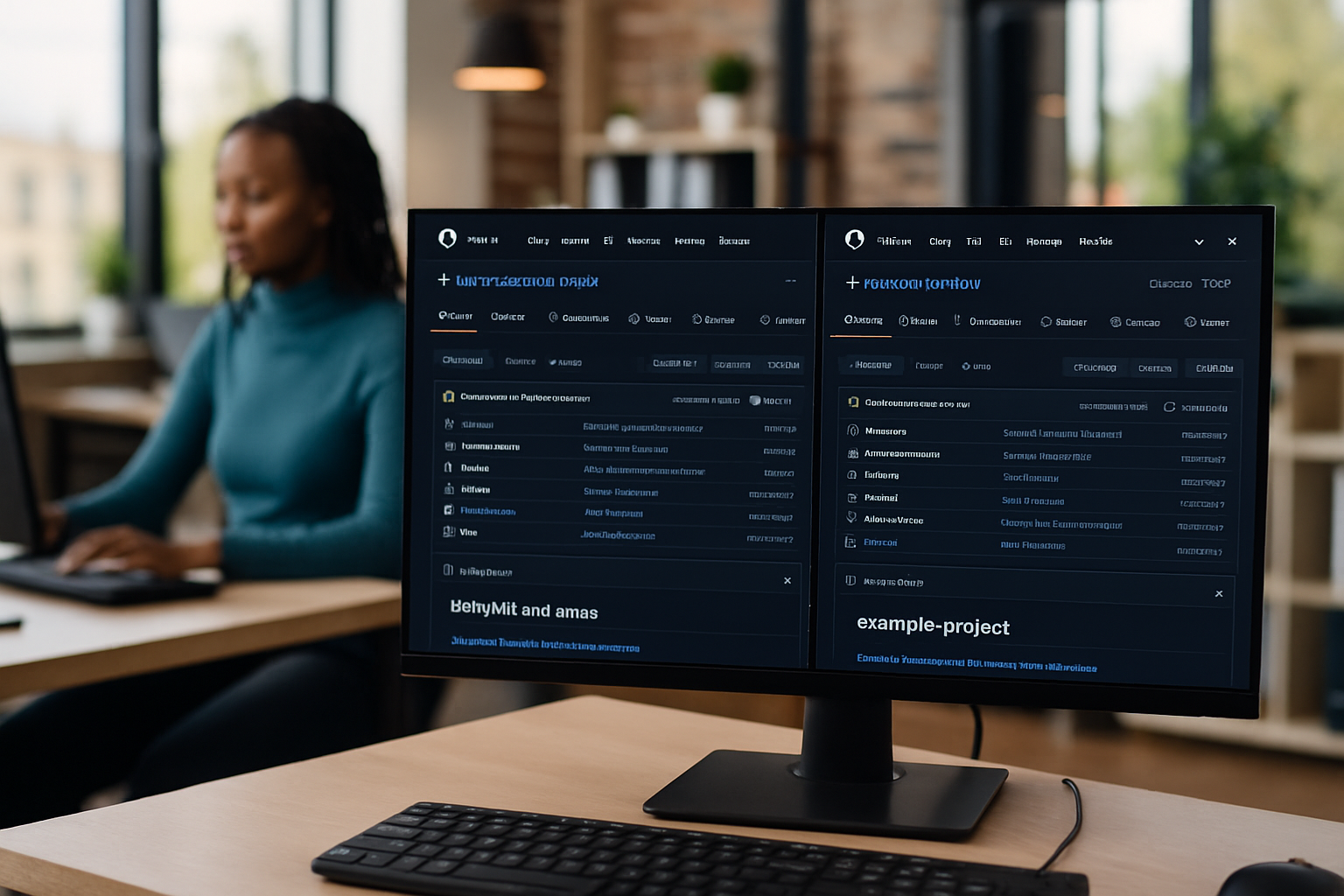
Top open-source tools every developer should know
Open-source tools have become the backbone of modern software development. They provide freedom, flexibility, and a vibrant community that collaborates to create solutions tailored for real-world challenges. For developers, embracing open source is not just about saving costs—it’s about participating in an ecosystem that values transparency, learning, and collective progress.
The Power of Open Source in Development
Open source does more than just give access to code—it fosters a culture of continuous improvement. Developers can study, modify, and share software, which accelerates both personal growth and technological advancement. This is especially significant for those from underrepresented backgrounds or neurodivergent communities, as open-source projects often welcome diverse contributions and unconventional thinking.
“The beauty of open source is that it’s not just about code. It’s about people coming together to solve problems.”
Version Control: Git and GitHub
At the heart of collaborative development lies Git, the most popular distributed version control system. It enables developers to keep a complete history of their work, experiment fearlessly, and collaborate without conflict. GitHub has amplified Git’s powers by providing a platform for sharing, reviewing, and managing projects. Whether you’re building web apps, machine learning models, or infrastructure, familiarity with Git is essential.
Key Features:
- Branching and merging for safe experimentation
- Pull requests and code reviews for collaborative quality control
- Issue tracking and project boards to organize work
Code Editors: Visual Studio Code
While there are many code editors available, Visual Studio Code (VS Code) has emerged as a developer favorite. It’s open source, cross-platform, and highly customizable. With its vast extension marketplace, VS Code adapts to web, cloud, data science, and embedded development alike.
Why developers love it:
- Integrated terminal and debugging
- Powerful search and code navigation
- Accessibility features that benefit neurodivergent users
- Live Share for real-time collaboration—ideal for distributed teams or learners
Automation and DevOps: Docker and Kubernetes
As projects scale, so does the need for consistent development and deployment environments. Docker allows you to package applications and their dependencies into containers, ensuring they run the same everywhere. Meanwhile, Kubernetes orchestrates these containers, managing scaling, failover, and service discovery.
Benefits for IT professionals:
- Rapid prototyping and testing
- Seamless deployment across cloud providers
- Infrastructure as code—making environments reproducible
“Docker and Kubernetes have redefined what it means to deploy software. What used to take days now takes minutes.”
Continuous Integration: Jenkins and GitHub Actions
Automating builds, tests, and deployments ensures code quality and agility. Jenkins, a long-standing leader in automation, is highly extensible and can integrate with virtually any stack. GitHub Actions brings automation directly into your GitHub repository, making it simple to set up continuous integration and deployment workflows with just a few lines of configuration.
These tools are particularly valuable for teams working in diverse environments or accommodating different learning and working styles. By automating routine tasks, developers can focus on creative problem-solving and learning new skills.
Package Management: npm, pip, and Homebrew
Modern development relies heavily on reusable libraries and tools. Package managers streamline the process of finding, installing, and updating these dependencies.
npm powers JavaScript and Node.js development, pip is essential for Python, and Homebrew simplifies managing software on macOS and Linux. These tools make software ecosystems accessible and manageable, supporting everything from rapid prototyping to enterprise-grade deployments.
Why Package Managers Matter
They save time, prevent version conflicts, and foster code sharing. For neurodivergent developers, the predictability and automation of package managers can reduce cognitive load and make workflows more accessible.
“The right package manager turns a daunting setup into a single command.”
Testing and Quality Assurance: Selenium and Jest
Reliable software demands robust testing. Selenium automates browser testing, making it indispensable for web development. Jest is a zero-config JavaScript testing framework, beloved for its speed and simplicity.
Testing frameworks are more than just bug catchers—they encourage developers to write code that is modular, predictable, and maintainable. For those who are new to programming or come from non-traditional backgrounds, good tests act as both safety nets and learning tools.
Accessibility and Inclusivity in Testing
Open-source testing tools often lead the way in making digital products more accessible. Features like screen-reader compatibility checks and keyboard navigation tests are readily available, lowering the barrier for developers to build inclusive technology.
Collaboration and Communication: Slack, Mattermost, and Zulip
Open source is, at its heart, about collaboration. Slack transformed team communication, but open-source alternatives like Mattermost and Zulip put control and customization in your hands. These platforms support asynchronous and real-time communication—vital for distributed teams and contributors who may prefer different communication styles.
For neurodivergent individuals or those balancing multiple responsibilities, asynchronous communication can be empowering, offering time to process and respond thoughtfully.
Documentation: MkDocs and Docusaurus
Good documentation is essential for any project. MkDocs and Docusaurus enable teams to create beautiful, searchable, and maintainable documentation with minimal setup. These tools integrate smoothly with version control systems, ensuring that documentation evolves alongside code.
“Documentation is the bridge between creators and users. Open-source tools make that bridge strong and welcoming.”
Security and Code Analysis: SonarQube and ESLint
Security and code quality are non-negotiable in today’s software landscape. SonarQube performs deep static code analysis, identifying bugs, vulnerabilities, and code smells across various languages. ESLint is indispensable in JavaScript projects, enforcing code standards and preventing common mistakes before they reach production.
These tools are often integrated directly into development environments and continuous integration pipelines, catching issues early and promoting a culture of quality and responsibility.
Open-Source Tools for Learning and Growth
Beyond productivity and collaboration, open-source tools are invaluable for learning. Platforms like Jupyter Notebook make data science accessible, allowing users to write, run, and share code interactively. freeCodeCamp and Codecademy open-source curricula empower self-directed learners to pick up new skills, regardless of background or resources.
For women in technology and neurodiverse learners, open-source educational resources offer a flexible, supportive environment to experiment and grow at their own pace.
Embracing Diversity in Open Source
Open-source communities thrive when they are diverse and inclusive. Projects like Outreachy and Women Who Code encourage participation from underrepresented groups, creating mentorship opportunities and fostering a sense of belonging. For neurodivergent contributors, many open-source projects adopt flexible communication norms, clear contribution guidelines, and accessible documentation—all of which lower barriers to entry.
“In open source, everyone has a voice. The most innovative solutions often come from the most unexpected places.”
How to Get Started with Open-Source Tools
Start by identifying areas where open-source tools can enhance your workflow. Join forums, read documentation, and don’t hesitate to ask questions—open-source communities are known for their willingness to help. Contributing to open source, even with small bug fixes or documentation improvements, builds skills and confidence. Many projects label beginner-friendly issues to make it even easier to dive in.
Adopt a mindset of curiosity and empathy: embrace the opportunity to learn from others, and be patient with yourself as you explore new technologies.
The Road Ahead
Open-source tools are shaping the future of technology. They democratize access to high-quality software, foster lifelong learning, and empower developers to solve real-world problems. Whether you are just beginning your journey or looking to deepen your expertise, the world of open source is open to you.
Every developer should know these tools—not just for their technical power, but for the community, creativity, and inclusivity they represent.
“Open source is more than a toolkit—it’s a movement. Your next big idea could start with a single pull request.”


